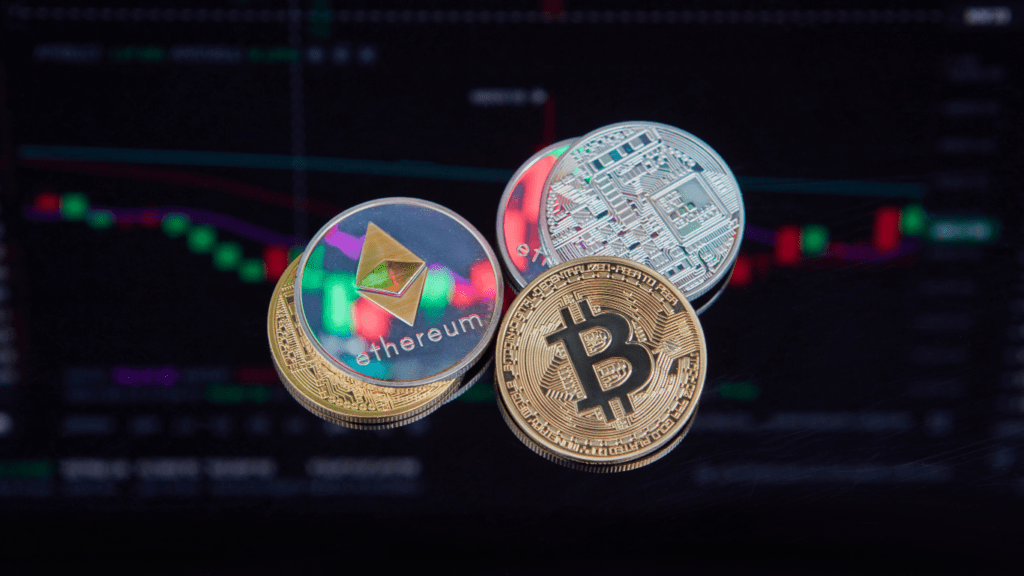Rise of Mobile Gambling
Mobile gambling has surged, becoming a dominant force in the online gambling industry. With over 50% of online bets now placed through mobile devices, this trend shows no signs of slowing down. Smartphones and tablets offer convenience; players can gamble anytime, anywhere.
Increased Accessibility
Smartphones have made gambling more accessible. High-speed internet and advanced mobile tech have created seamless gaming experiences. Apps and mobile-optimized sites dominate the market, enabling quick and easy access to various gambling platforms.
Enhanced User Experience
Game developers prioritize mobile play. Optimized graphics, intuitive interfaces, and responsive designs enhance user experiences. Many casinos now offer exclusive mobile bonuses and promotions, attracting more users to mobile platforms.
Security Features
Mobile gambling platforms invest in top-notch security. Encryption methods ensure safe transactions. Two-factor authentication adds extra layers of protection, making users confident in their mobile gaming activities.
Variety of Games
Mobile platforms offer diverse gaming options. From slots to poker to live dealer games, there’s something for everyone. Many developers release mobile-first games, ensuring high quality and innovation tailored for mobile play.
Integration with Emerging Technologies
Innovative technologies integrate seamlessly with mobile gambling. Augmented reality (AR) and virtual reality (VR) enhance mobile games’ immersion, offering richer experiences. Cryptocurrency is also increasingly supported, providing secure and anonymous transactions.
Investing in these advanced features, mobile gambling platforms continually evolve and improve, keeping users engaged and attracting new players.
Growth of Live Dealer Games
Live dealer games have become a significant trend in online gambling. They’re transforming the way players experience online casinos by offering real-time interaction and an authentic casino experience.
Real-Time Interaction
Live dealer games allow players to interact with real dealers and other players in real-time. This interactivity boosts player engagement compared to standard online games. Dealers shuffle cards, spin roulette wheels, and manage games live, giving players the chance to chat and ask questions through integrated chat features. This immediacy reduces the feeling of isolation and enhances the social aspect of online gambling.
Authentic Casino Experience
Real dealers operate live dealer games, creating an authentic casino atmosphere. High-definition streaming technology allows players to observe every detail, from the dealer’s actions to the results of each game. Players feel immersed in a real casino, even while playing from home. Variants of classic games like blackjack, roulette, and baccarat allow players to enjoy a variety of options, mirroring the diversity found in physical casinos.
Cryptocurrencies in Online Gambling
Cryptocurrencies are revolutionizing the online gambling industry, providing various advantages to both operators and players. This section explores the benefits and popular cryptocurrencies in use.
Benefits of Using Cryptocurrencies
Cryptocurrencies enhance the online gambling experience in several ways:
- Anonymity: Players value privacy, and cryptocurrencies offer a higher degree of anonymity compared to traditional payment methods. For example, users don’t need to share personal or financial details.
- Security: Transactions conducted using cryptocurrencies are highly secure, leveraging blockchain technology to prevent fraud and ensure integrity. Each transaction is encrypted and verified.
- Speed: Cryptocurrency transactions are processed faster than traditional banking methods. Deposits and withdrawals generally reflect instantly, allowing immediate play and accessibility.
- Lower Fees: Using cryptocurrencies reduces the transaction fees associated with deposits and withdrawals. Many platforms pass these savings onto players.
- Global Access: Cryptocurrencies enable borderless transactions, making it easier for players across the world to participate in online gambling irrespective of local banking restrictions.
Popular Cryptocurrencies in Use

Several cryptocurrencies are widely accepted in online gambling:
- Bitcoin (BTC): As the first cryptocurrency, Bitcoin remains the most popular choice. Major online casinos accept Bitcoin due to its wide recognition and reliability.
- Ethereum (ETH): Ethereum stands out for its smart contract capabilities. It’s popular in gambling platforms that utilize decentralized applications (dApps) to enhance transparency and fairness.
- Litecoin (LTC): Known for faster transaction times and lower fees than Bitcoin, Litecoin is another favored option among gambling sites.
- Ripple (XRP): Ripple caters to users looking for quick transactions and low fees. Its unique consensus algorithm ensures rapid processing.
- Bitcoin Cash (BCH): Offering lower fees and faster transactions than Bitcoin, Bitcoin Cash is becoming increasingly accepted on gambling platforms.
These cryptocurrencies have distinct features that make them suitable for integrating into the online gambling ecosystem. Adopting these digital currencies offers users and operators numerous benefits, optimizing the gambling experience.
Virtual Reality (VR) and Augmented Reality (AR) Gambling
The incorporation of Virtual Reality (VR) and Augmented Reality (AR) into online gambling is revolutionizing how players engage with games. This section explores the immersive experiences and future potential of VR and AR gambling.
Immersive Gaming Experiences
VR and AR technologies are transforming online gambling by creating immersive gaming experiences. Players can now enter virtual casinos, interact with realistic environments, and engage in games like poker, blackjack, or roulette as if they were in a physical casino.
VR headsets and AR mobile apps provide lifelike graphics and sounds, enhancing the overall gaming experience. For example, VR can place players at a virtual poker table with avatars representing other participants, while AR can overlay game elements onto a player’s real-world environment, making it possible to play blackjack on a kitchen table.
Future Potential and Challenges
The potential for VR and AR in gambling extends beyond current applications. Future developments could include multiplayer virtual casinos where users from around the world meet and play in real-time. Enhanced AR features might allow integration with live sports betting, providing real-time data and overlays during matches.
However, challenges exist. The high cost of VR equipment and the need for powerful hardware may limit widespread adoption. Additionally, ensuring fair play and preventing cheating in virtual and augmented environments presents significant hurdles. Despite these challenges, the continuous advancement of VR and AR technologies promises to shape the future of online gambling in innovative ways.
Legal and Regulatory Changes
Staying updated on legal and regulatory alterations in online gambling is essential for both players and operators. Recent legislative trends and their impacts have reshaped the landscape of this industry.
Global Legislative Trends
Several countries are refining online gambling laws to adapt to modern technologies. The United States legalized sports betting in many states after the 2018 Supreme Court ruling. Similarly, Germany launched its new Interstate Treaty on Gambling in 2021, setting nationwide regulations for the first time. In 2022, The Netherlands began enforcing its Remote Gambling Act, which legalizes and regulates online gambling. Regulatory bodies are now focusing on responsible gaming measures and advertising controls to protect consumers.
Impact on Players and Operators
Regulatory changes often redefine both the player experience and operational protocols. In jurisdictions like the UK, stringent measures protect players against problem gambling, including self-exclusion tools and deposit limits. Operators must conform to data protection laws, ensuring the security of user information. Compliance increases operational costs but enhances trust and credibility. These legal adaptations can effectively balance user protection with market expansion, fostering a safer, more reliable gambling environment globally.



 Earlee Nelsonallers – Founder
Earlee Nelsonallers is the visionary founder of Smart Gamble Land, bringing over two decades of experience in the gambling industry. Passionate about strategy and innovation, Earlee has made it his mission to provide gamblers with advanced insights into winning techniques, effective betting systems, and casino game mastery. His deep understanding of gambling psychology has been the driving force behind the platform's success, making Smart Gamble Land a go-to resource for players seeking an edge. Earlee's dedication to educating and empowering gamblers sets the foundation for the platform's authoritative content.
Earlee Nelsonallers – Founder
Earlee Nelsonallers is the visionary founder of Smart Gamble Land, bringing over two decades of experience in the gambling industry. Passionate about strategy and innovation, Earlee has made it his mission to provide gamblers with advanced insights into winning techniques, effective betting systems, and casino game mastery. His deep understanding of gambling psychology has been the driving force behind the platform's success, making Smart Gamble Land a go-to resource for players seeking an edge. Earlee's dedication to educating and empowering gamblers sets the foundation for the platform's authoritative content.
